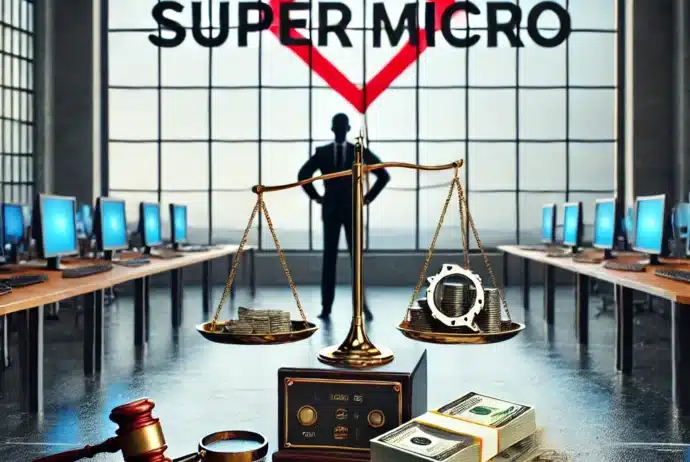Key insights :
- Super Micro is accused of improper financial practices, including revenue manipulation and undisclosed transactions linked to its CEO’s family.
- Hindenburg Research claims Super Micro violated U.S. sanctions by allegedly continuing shipments to Russia through third-party distributors.
- The report raises concerns about Super Micro’s financial transparency, potentially leading to legal and regulatory consequences.
Super Micro Computer Inc., a California-based server manufacturer, has recently been accused of financial misconduct and violating U.S. sanctions, according to a report released on August 27, 2024, by Hindenburg Research, an investigative firm known for its high-profile allegations against corporations.
The report claims that Super Micro engaged in improper financial practices, manipulated its revenue, and conducted undisclosed transactions with entities linked to the family of CEO Charles Liang. The report also accuses the company of continuing shipments to Russia despite U.S. sanctions prohibiting such activities.
Allegations of Improper Financial Practices
Hindenburg Research’s investigation points to irregularities in Super Micro’s financial practices, focusing on improper revenue recognition and undisclosed related-party transactions. According to the report, these related-party transactions allegedly involve companies controlled by family members of Super Micro’s CEO, Charles Liang. These dealings are believed to have distorted Super Micro’s earnings reports and artificially inflated the company’s sales and profits.

CypherMindHQ.com Artificial Intelligence Crypto Trading System - Surpass the competition with this cutting-edge AI system! Utilize the prowess of innovative algorithms and amplify your crypto trading strategies with CypherMindHQ. Learn more today!
Super Micro is no stranger to regulatory scrutiny. In 2018, the company was delisted from the stock exchange for failing to submit timely financial reports, prompting an investigation by the Securities and Exchange Commission (SEC). This investigation, which was settled in 2020, revealed over $200 million in improperly recognized revenue and understated expenses. As part of the settlement, Super Micro agreed to pay $17.5 million in fines. Despite this, Hindenburg claims the company returned to questionable accounting practices not long after the settlement.
Hindenburg’s investigation involved interviews with former Super Micro employees and a thorough review of litigation and customs records. These findings raise concerns about the company’s current financial governance and transparency.
Claims of Sanctions Violations
In addition to allegations of financial misconduct, the Hindenburg report accuses Super Micro of violating U.S. export controls and sanctions. Following Russia’s invasion of Ukraine in 2022, the U.S. imposed sanctions prohibiting the sale of certain technologies to Russia.
Super Micro initially announced that it had halted all shipments to Russia in compliance with these sanctions. However, Hindenburg alleges that Super Micro continued supplying high-tech components to Russia through third-party distributors, circumventing U.S. export laws.
These allegations, if proven, would indicate serious legal violations on Super Micro’s part, potentially leading to significant penalties and further regulatory action. U.S. sanctions are strictly enforced, especially with regard to sensitive technologies like those produced by Super Micro, which are critical in high-performance computing and AI applications. As of now, Super Micro has not publicly responded to these accusations, and the full extent of any potential legal consequences remains unclear.
AI Market Challenges and Regulatory scrutiny
Super Micro has established itself as a player in the AI and high-performance computing market, thanks to its early focus on AI-related technology and strong partnerships, particularly with Nvidia. However, the company faces mounting challenges, including intensified competition from industry giants like Dell and rising production costs that are squeezing profit margins. The recent release of the Hindenburg report, which led to a 3.5% drop in Super Micro’s shares, further complicates the company’s outlook.
As regulatory pressures mount across the tech industry—highlighted by Elon Musk’s support for California Senate Bill 1047, which proposes stringent safety testing for costly AI models—Super Micro’s ability to navigate these challenges and allegations will be critical. The company’s response to these issues and its adherence to financial and export regulations will influence its future in the rapidly evolving AI sector.



